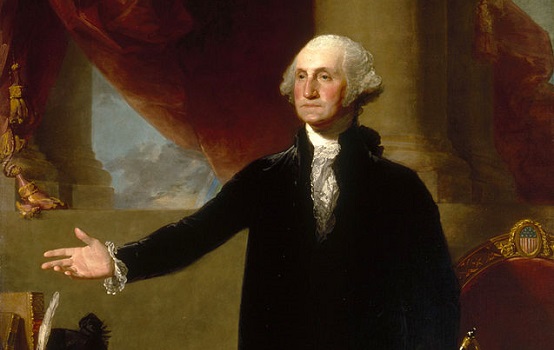
The drive for recognition is among the most basic and universal of human motivations. It is the mainspring of human action, having motivated the Alexanders, Caesars, and Napoleons of the world, but also the Michelangelos, Marie Curies, as well as our own George Washington, whose birthday we celebrate this month.
Recognition is necessarily zero-sum: to praise is to identify in something a good that is out of the ordinary—and by definition, not everyone can be extraordinary. In remembering Washington this President’s Day, we celebrate his courage and moral fortitude. America exists because he was not, in these respects, ordinary.
There exists a tension between the idea that all people have equal worth and that some people are more praiseworthy than others. It feels almost un-American to elevate some over others, and contrary to the all-men-are-created-equal credo of the Declaration of Independence. Yet we also—rightly—celebrate the sacrifice of men and women in our armed forces, the achievements of the best athletes, and the talents of artists. Making “top 100” lists is almost an American pastime, and shows that we are not egalitarian absolutists. We understand that recognizing the achievements of others is right and good.
We should not try to dissolve this tension in favor of one principle or the other. Both are true: the fact of difference doesn’t negate our fundamental equality. Take Washington, who was himself praiseworthy, but also dedicated to the natural equality of all.
Washington was a legend, even in his day. His first biographer, Mason Locke “Parson” Weems, insisted that he embodied all virtues: “It is hardly an exaggeration to say that Washington was pious as Numa; just as Aristides; temperate as Epictetus; patriotic as Regulus; in giving public trusts, impartial as Severus; in victory, modest as Scipio; prudent as Fabius; rapid as Marcellus; undaunted as Hannibal; as Cincinnatus disinterested; to liberty as firm as Cato; as respectful to the laws as Socrates.”
Retelling famous stories about Washington’s virtue and ability—such as his honesty after cutting down his father’s cherry tree (popularized by Weems) or surviving two horses being shot out from under him—buttressed his exalted status, past and present.
However, Washington was committed to the equality of all persons, and acted on that commitment in important ways. Most famously, after the American Revolution, it was out of his dedication to the rule of equal citizens that he declined the would-be American throne. According to King George III, this decision made him “the most distinguished of any man living…the greatest character of the age.”
Of course, Washington did not fully live up to his ideal of equality. He was a slave owner until his death. He undoubtedly thought slavery was a harm to the American project, and he criticized the abhorrent institution during and after the American revolutionary war: “I never mean (unless some particular circumstance should compel me to it) to possess another slave by purchase: it being among my first wishes to see some plan adopted by the legislature by which slavery in the Country may be abolished by slow, sure, & imperceptible degrees.” Washington provided for the manumission of his slaves in his will, but there can be no doubt that he was unwilling to bear the costs that truly confronting the evil of slavery would require during his lifetime.
It is not unusual that Washington refused to live out his ideals in every aspect of his life. Today, as then, many of us, out of selfishness or prejudice, fail to live in the way we know we ought. This does not begin to excuse Washington, of course, but it does make our understanding of our first President more authentic and relatable—it is our fallibility that makes us human. We can learn not only from Washington’s egalitarian ideals, but also from his failure to live up to them.
When Washington was in the first national capital of New York City, his desire to treat everyone equally and avoid appearing to play favorites caused him apprehension over how to respond to dinner invitations. If he accepted the offer to dine at the house of one person, would he be obligated to dine with everyone? If he declined, would he appear haughty and—God forbid—monarchical? Being evenhanded in his treatment of all American citizens, out of respect for their fundamental equality, was a real concern for him.
Thomas Jefferson, perhaps our second most esteemed Founding Father, reminds us that our distinctions matter less than what we have in common. In a letter to Henry of Gregoir in 1809, he wrote, “Degree of talent can be no measure of rights. If it were, it would mean Isaac Newton would have more rights than the local butcher.”
We study Newton’s scientific achievements in history textbooks because his achievements in the natural sciences were more pronounced than the butcher’s. Similarly, many of us will never lead a revolutionary war as Washington did. But for Jefferson, those differences—between Newton and the Butcher, Washington and ourselves—are less important than the similarities: our intrinsic equality as human beings, the thesis of the Declaration of Independence.
Today, some condemn America’s recognition of merit, claiming it promotes hierarchy and injustice. Jefferson’s point is salient. Though recognizing difference—in talent, interest, qualification, or accomplishment—invariably produces hierarchy, a society that recognizes the praiseworthy is tolerable and good only if we understand that our differences matter less than our essential commonality: the innate and equal dignity of all.
Washington recognized this truth. For that reason, among others, we honor him.
Alexandra Hudson is a writer, bibliophile, and former federal civil servant based in the Midwest. She contributes to the Wall Street Journal, the Washington Examiner, and Quillette. She is currently writing a book on civility. Follow her on Twitter @LexiOHudson.